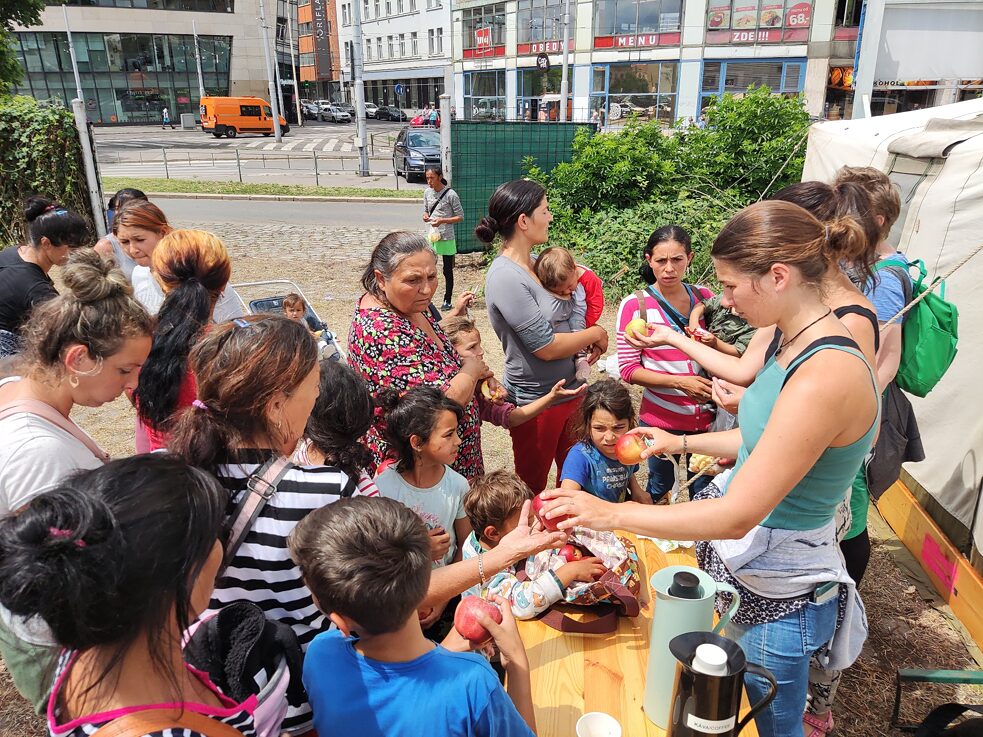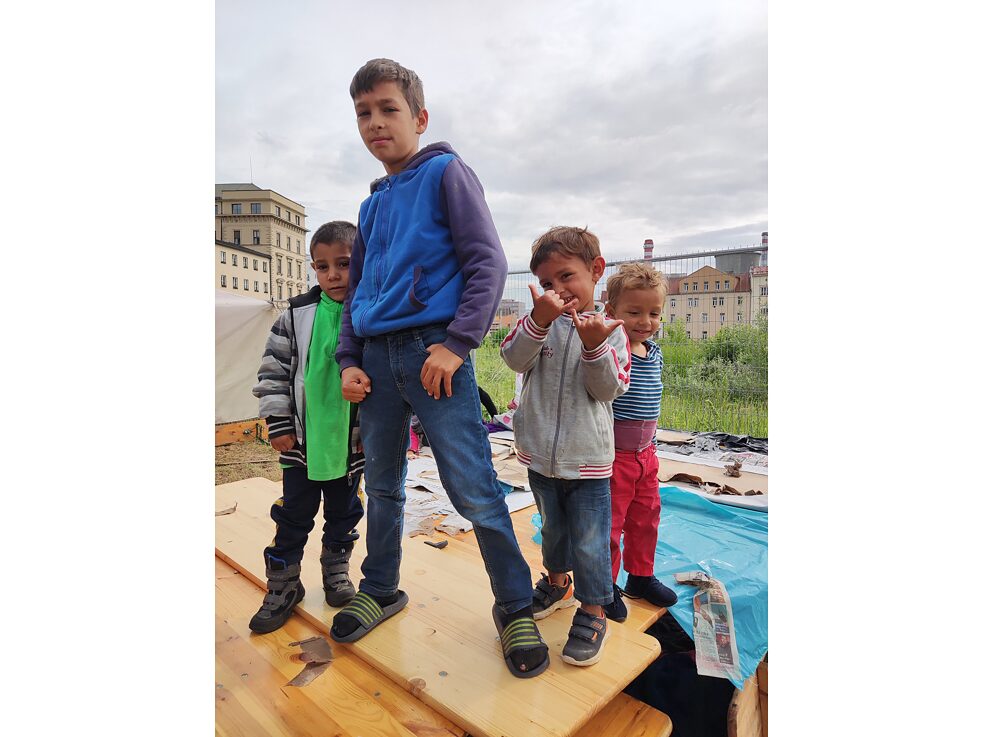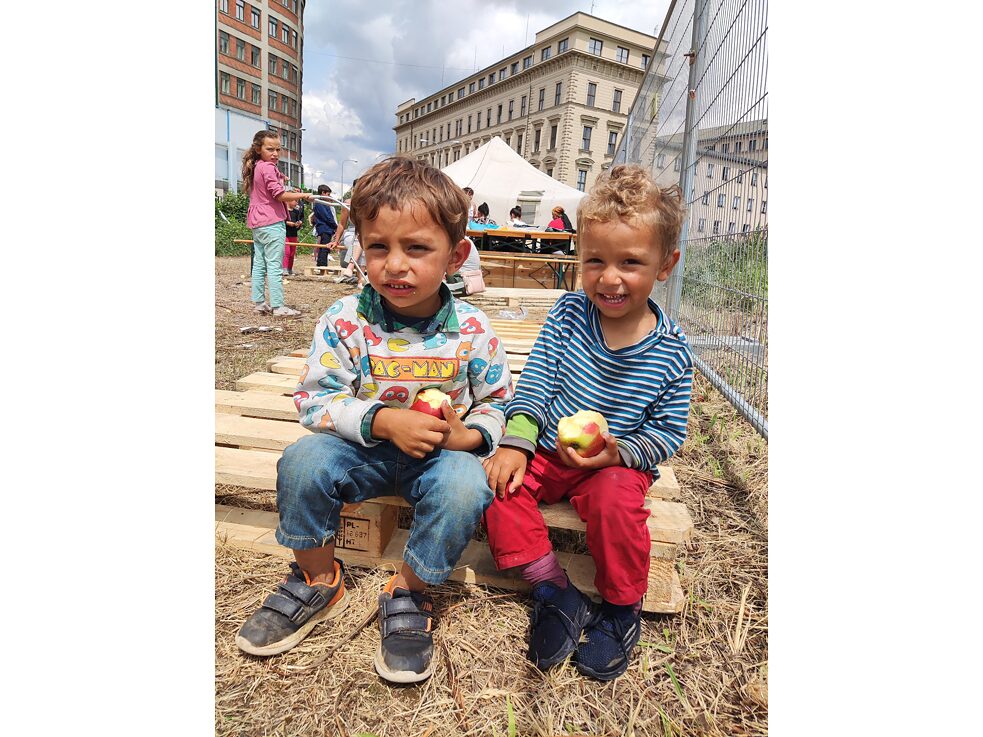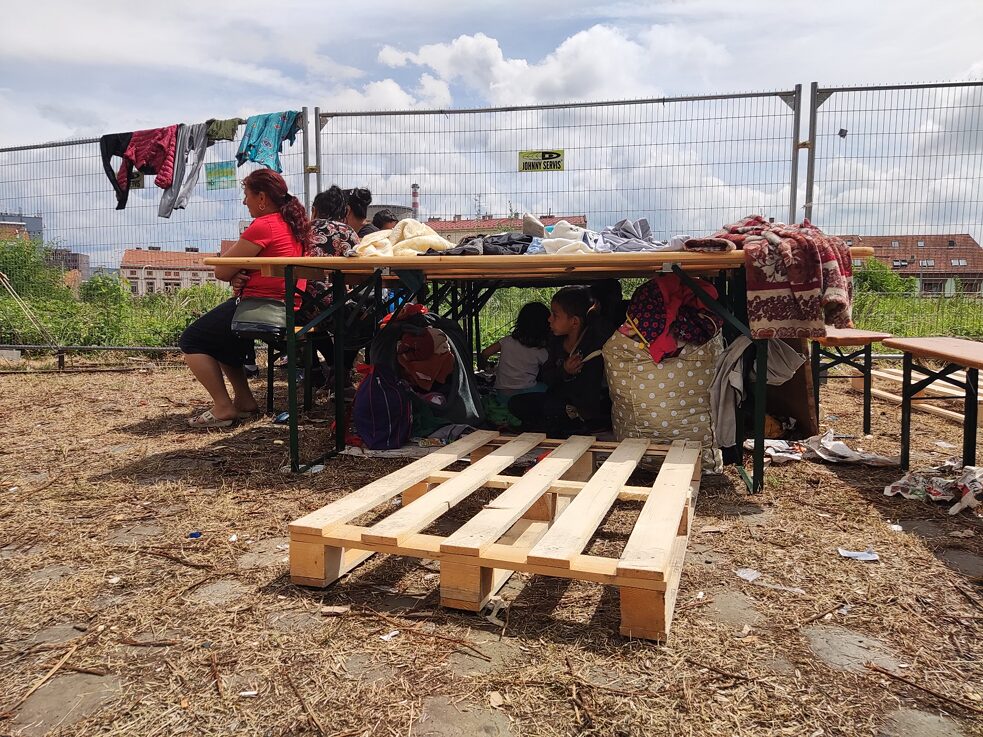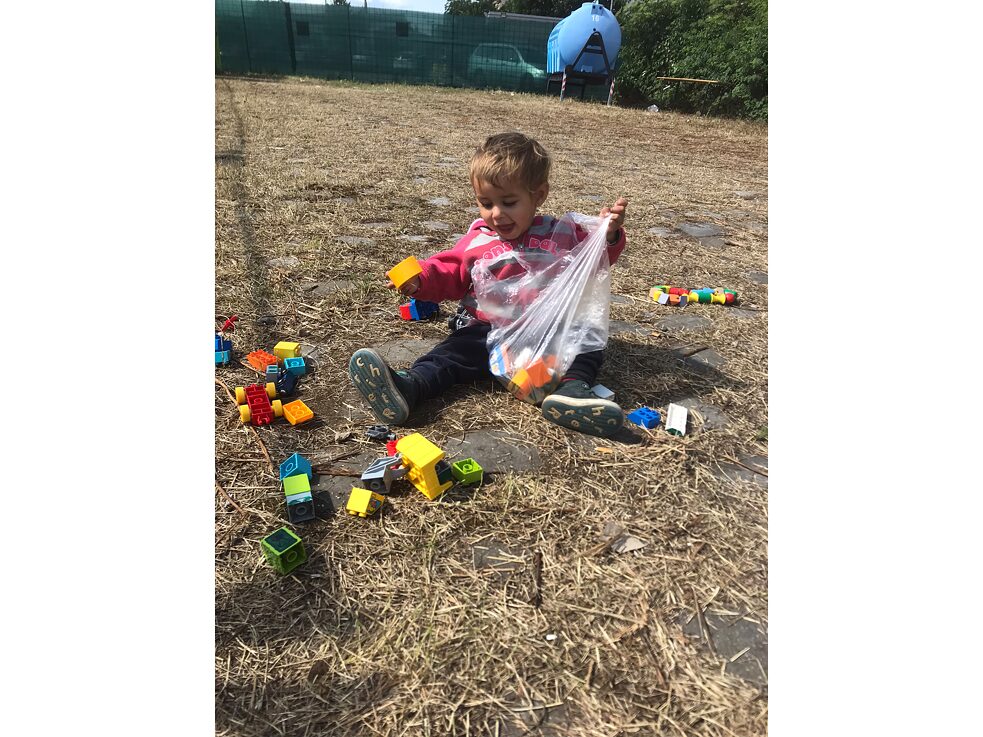Roma from the Ukraine
Most Importantly, Stick Together
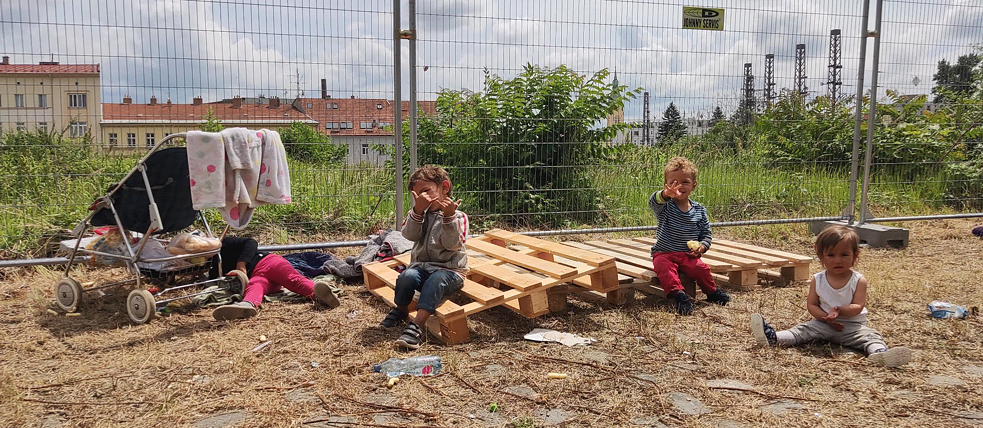
The Czechs have shown strong solidarity with Ukraine. Almost 390,000 war refugees have been officially registered here to date. But one group tends to be overlooked: the Ukrainian Roma. Anna Demchuk is from Ukraine too, but she’s been living in Brno for a long time. She’s a member of the so-called “Grand Initiative” to help Romani families stranded in this Czech city.
By Anna Demtschuk
It’s morning. It’s been the hardest time of day ever since the war started. As soon as my alarm clock rings, I reach for the phone to check the news: How many new arrivals today? Do they have anything to eat? Who can deliver lunch today? Have they got a place to sleep? Who will sort through and bring sanitary products and things for the children? They need medication, can somebody take care of that? It looks like there are cries for help, but reality is that most people, especially those in power, steer clear of this issue.
Ukrainian Roma. They congregate here at big train stations. Women with children, big families – they simply picked up and left, just like that, with nothing. Why are they here? What do they want? To escape the horrors of war or are they here just for the welfare benefits? These are the questions everyone who’s met them over the past few months has had to ask themselves. And I ask myself the same questions first thing in the morning whilst brushing my teeth, packing some sweets and a few toys for the children in my knapsack and setting off for the main station, where I’ll try to help these people cope with the situation and find out more about them.
Always On the Run
I’m a member of the Grand Initiative, which is run by people who care about the fate of Romani families from Ukraine. We’re a loose-knit group: some of us are from NGOs, others help out as private individuals. Some bring pallets by car so the women and children won’t have to sleep on the bare ground. Some cook food for others to hand out. I mainly talk to the women. I’m from Ukraine, so we communicate in Russian, which is one of the languages they can speak to a certain extent.They tell me their stories – though constantly interrupting each other: They’re from Berehove, many of them have come here straight from the Roma settlement that’s been there for about a hundred years. It’s the largest such settlement in western Ukraine, with about five or six thousand Roma, many of them permanent residents. The settlement – or “camp” as the locals call it – was established in Berehove back in the 1930s when Hungarian Roma fled en masse from the Hungarian Nazis to Czechoslovakia. [As part of the Carpatho-Ukraine region (Czech and Slovak: Podkarpatská Rus (Subcarpathian Rus’)), the area around Berehove belonged to Czechoslovakia from 1919 until it was awarded to Hungary in 1938. – Editor’s note] This is why most Romani in Berehove speak Hungarian. All told, roughly fifty thousand Romani live in Ukraine. So history repeated itself for them recently when those living in Ukraine’s second-largest Roma enclave, over in Donbas, had to flee from Russian fascists all the way to Kyiv.
War is Chaos and Hunger
Roma have been living in Berehove for generations and are more or less left to their own devices there. Many are unschooled and have no papers, so it’s hard for them to find work. Most Ukrainians in this region have a hard time finding work, which is why we see many of them here in the Czech Republic – on building sites, though even more of them are working on assembly lines in factories or other hardly visible but physically demanding jobs. The Romani who do manage to get a passport go abroad to earn money, mostly to Hungary, Slovakia or the Czech Republic. But now that war has come to Ukraine, the men have to stay behind to defend the country.Many of them still can’t believe it. What if they die? Who will feed the family then? They’re afraid and they don’t want to go to war at all. War is something that affects everyone, whether they’re in the actual war zone or in a settlement on the Hungarian border. War also means high food prices, job losses and no chance of seeking work abroad. War means fear in the children’s eyes. War is chaos and hunger.
I’m standing in line with Šandor from Berehove at the Refugee Assistance Centre. He’s scrolling through family photos on his phone to show me a picture of his little sister when a siren suddenly sounds on the phone. I’m startled, but he quickly reassures me: “It’s nothing, just an air-raid alarm in Berehove....”
Everything’s so Expensive
Now we’re standing between the station and Malinovský Square, where the Roma families are now staying, and talking to Irina, who’s also from the Berehove settlement. She’s showing me pictures of her son’s birthday party. The room looks festive – with a cake and a bottle of Coke on the table, white curtains – and homelike, but still pretty empty. Irina has five kids. She shows me pictures of her daughters’ going to school and dressing up for a ball.“I don’t have a husband, so I have to take care of everything myself, and salt already costs 80 hryvnias [about €2.20],” Irina bemoans. “Everything is so expensive, there’s no work and I’m not getting money anymore for the children. What do I do?” she asks herself – or maybe me, or maybe she’s asking God.
It’s ten o’clock in the morning now and gradually getting very hot in the square. Under the searing sunshine, the kids are dousing their heads in water from a mobile tank to cool off, whilst some of the women have withdrawn into their tents or into the only shade, at the entrance to their “new settlement”. Some other women walk over and ask me to help them fill out papers “for the bank”, by which they mean the unemployment office where you have to apply for welfare. It does seem a lot like a bank: you take a number, fill out some papers and they give you some money.
You Have to Stick Together
I have a seat in the sunshine at the tables some of them had to sleep under last night because there wasn’t room in the tents, and start filling out the papers. The women have a visa, so do their children, but they have no address, which means they probably won’t be getting any more welfare payments. I try to explain this to them. They understand that, but without money they can’t pay for a roof over their heads.If you’re a Romani, you see things differently – especially all the symbols of oppression, such as white men, police, barbed wire, security guards – even locks on people’s doors. You’re afraid of them because you know that mainstream society are “protecting themselves” from you with the aid of all these symbols. When you see a former barracks, you’re actually afraid they might lock you up in there and throw away the key. You don’t see the slightest reason why you should trust powerful white men because you know all too well about racism, pogroms and the Holocaust. You know you’ve got to stick together, that’s your only strength. So you’re better off staying outside.
Shards of the Shattered Royal Mirror
The heat in the square becomes unbearable by lunchtime. We’re making lists of everything these people need: prams, clothes, medicine, only the essentials. And lots of baby clothes in particular because you can’t wash clothes here in the square. They ask us if we could bring some food, too, and tell us how deeply thankful they are – but no more pictures please: they don’t want everyone seeing how they live here, it’s embarrassing, undignified.When I finally leave, I feel powerless, sad, desperate, angry. I know there are many more of these people than just the women and children here in the square, thousands of them. They’re like the shards of the royal mirror that shattered during a quarrel between the king’s sons and were scattered everywhere. And if they don’t get pieced back together, so the legend goes, they’ll be cursed forever.
The war in Ukraine is only gradually exposing all the problems to which the powers that be have long turned a blind eye. Can the problems be fixed? Can the Roma recover their dignity and their freedom? Wouldn’t it be a good start for their dignity to be restored in our eyes?
This text first appeared in the German-Czech-Slovak online magazine Jádu and can be read in full in those languages there.
